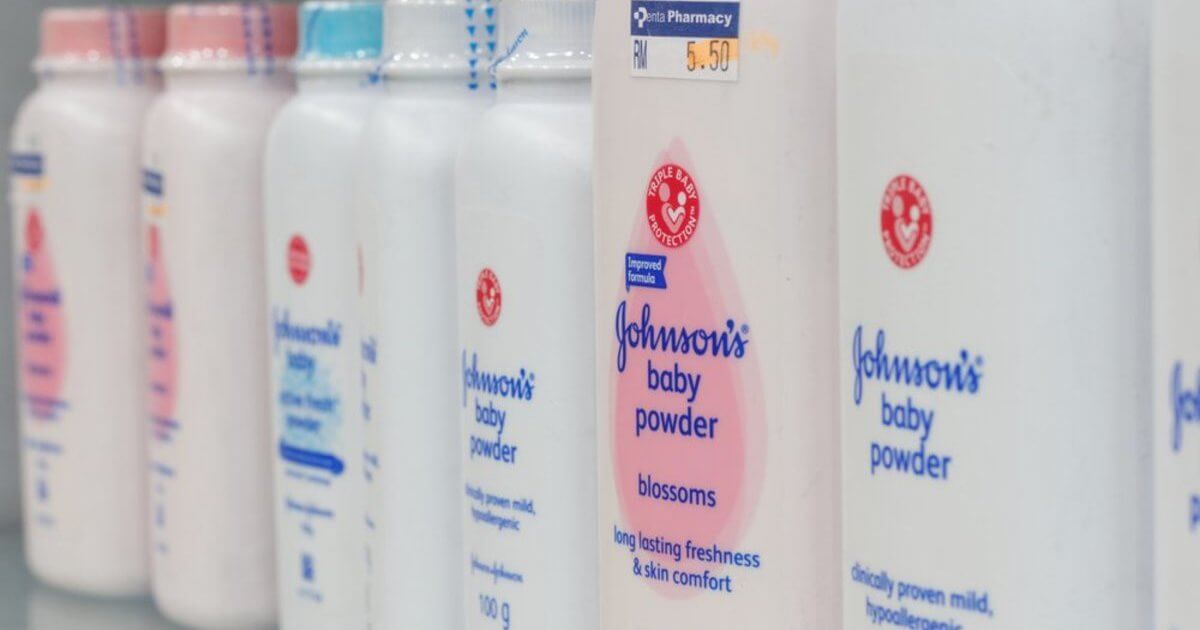J&J's Baby powder & Cancer: New Lawsuit
- The National Council of Negro Women filed a lawsuit against Johnson & Johnson for the marketing of its baby powder, which is said to cause cancer.
- Our experts recommend not using the baby powder until more definitive data is available.
- Ovarian cancer has been called the cancer that "whispers," due to its hard-to-spot symptoms.
#NCNW HQ BREAKING NEWS: We are pursuing litigation against Johnson & Johnson regarding the marketing of the company’s talcum-based powder products to Black women, despite links to ovarian cancers. @AttorneyCrump & @NapoliShkolnik announced the filing of the lawsuit on our behalf. pic.twitter.com/FjYJY9nmAG
— NCNW Headquarters (@NCNWHQ) July 27, 2021
These allegations echo those of other women in the U.S. who have said that the company’s talcum powders led to their cancers. Johnson & Johnson faces more than 25,000 lawsuits as a result, and the company removed its baby powder from U.S. and Canadian markets in 2020, and earmarked $4 billion for lawsuit settlement fees.
In a statement, J&J’s spokeswoman Kim Montagnino said this week, "The accusations being made against our company are false, and the idea that we would purposefully and systematically target a community with bad intentions is unreasonable and absurd.”
Ovarian Cancer & Baby Powder
Gynecologic oncologist Dr. Kris Zanotti of University Hospitals in Cleveland tells SurvivorNet in a previous interview that she frequently gets asked by patients whether or not there’s a link between baby powder and ovarian cancer. Dr. Zanotti shares what she typically tells patients, saying, “This link was first considered when pathologists saw talc crystals within the pathology specimens of ovarian cancer patients, and so epidemiologic studies followed that, some of which were conflicting.”
“I think that we are lacking definitive data.”
“Some indicated a possible association, and some not indicating an association,” says Dr. Zanotti. “These studies are pretty difficult to do because they require women to recall their talc use and quantify their talc use sometimes 20 and 30 years earlier.”
“Johnson and Johnson was asked to pay ovarian cancer patients and their families millions of dollars for their product possibly being associated with those cancers,” she says. “So what I tell patients is, well, at the time when talc powder was first introduced for public use, people did not understand the possible association to ovarian cancer.”
Dr. Zanotti says that for patients who are concerned, it’s best for them to choose an alternative to talcum powder for their personal hygiene. She also adds that she recommends for patients to, in general, stay away from talcum powder in the absence of firm information about its safety.
“I think that we are lacking definitive data,” says Dr. Zanotti.
The Truth about Ovarian Cancer and Baby Powder
Understanding Ovarian Cancer
Ovarian cancer has been called the cancer that "whispers," due to its hard-to-spot symptoms. In an earlier interview, Dr. Beth Karlan, a gynecologic oncologist at UCLA Medical Center, explains what to look for with this cancer.
Dr. Karlan says, "If you are experiencing any of the following symptoms, and they seem to be 'crescendoing,' or getting worse, it is worth it to see a doctor to rule out ovarian cancer:
- Feeling full earlier/decrease in appetite
- Feeling bloated
- Changes in bowel habits
- Pain in the pelvis
- Urinary symptoms, such as an urgent need to go
- Extreme fatigue
- Abdominal swelling
- Pain during sex
She says, "These are not very specific. But what we've found from multiple studies, it's this constellation of symptoms. If that goes on for only two weeks, you should call your doctor. Let them know and say that you're concerned."


